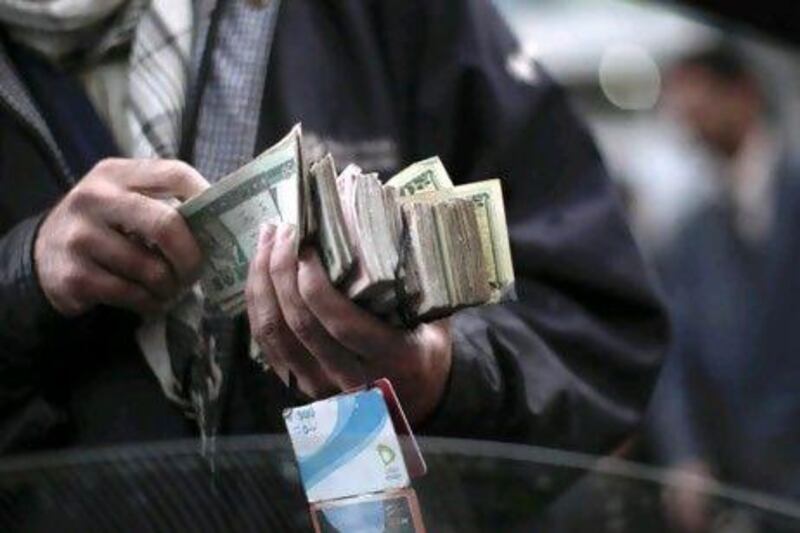Etisalat plans to spend US$100 million (Dh367.3m) in Afghanistan over the next two years, as it looks to double its mobile phone subscriber base in the country.
While there are challenges in the market due to the unstable security situation, analysts point to the opportunity for growth in Afghanistan's mobile market, given half the population has not subscribed to any service.
Etisalat Afghanistan makes up only a fraction of the UAE telecommunications group's annual revenues, but this is growing.
"Our budget is $100m for 2011 to 2012," said Saeed al Hamli, the chief executive of Etisalat Afghanistan, according to Reuters. "We expect our subscribers to reach 6 million to 6.6 million in two to three years."
The company currently has about 3 million subscribers and a market share of 24 per cent, which Mr al Hamli predicted would grow to between 30 and 35 per cent, according to reports.
He said Etisalat Afghanistan was also looking to acquire an internet service provider in Afghanistan, and was willing to bid for a third-generation mobile licence in the country, Zawya Dow Jones reported.
Etisalat Afghanistan competes with operators including Roshan and MTN Group in the country. It was awarded the fourth mobile phone operator licence in Afghanistan in May 2006 and started commercial operations in August 2007.
Irfan Ellam, a telecoms analyst with Al Mal Capital, said low mobile penetration rates meant the Afghanistan market was poised for growth.
"The market is [about] 52 per cent penetrated - so there is obviously a lot of growth and natural demand there," he said. "Afghanistan wouldn't appear on most people's radar … But it has proven very successful for Roshan."
Mr Ellam said Etisalat's expansion was likely to be through both increasing use of mobile phones and luring business from competitors.
He pointed to the company's rising revenues in Afghanistan, which more than doubled to Dh623m last year compared with Dh293m in 2009. "In the whole scheme of things it's small, but it's growing much faster than other parts of the operation," he said.
Etisalat has launched preferential mobile calling rates between Afghanistan and Pakistan, where it also has an operation. Mr Ellam said, given the volume of calls between the two countries, the fact that Etisalat had an operation in both "does give them an advantage".
He said there had been "challenges" given the security situation in Afghanistan, but residents had a vested interest in protecting the telecoms infrastructure.
In a bond prospectus filed to the London Stock Exchange in November last year, Etisalat said "the security situation in Afghanistan and other regions in which the group operates remains unstable and could have a material, adverse effect on the group's business, financial condition, results of operations and prospects".
According to the document, the Afghanistan operation contributed 0.84 per cent of Etisalat's revenues in the first nine months of 2009, compared with 1.87 per cent in the same period last year.
* with agencies





